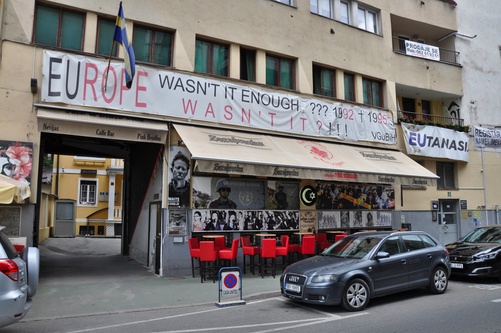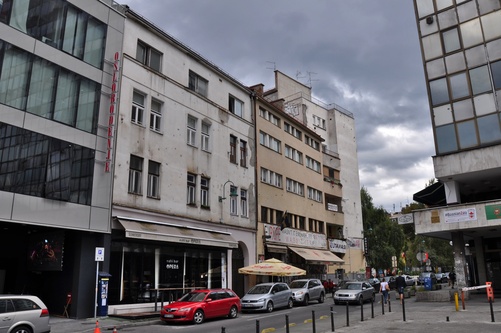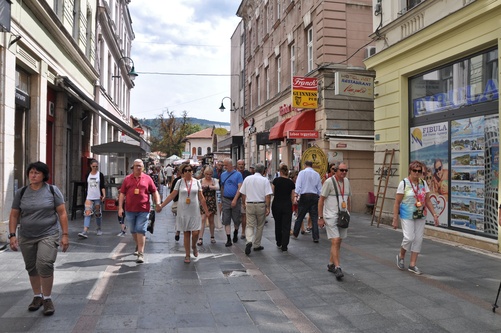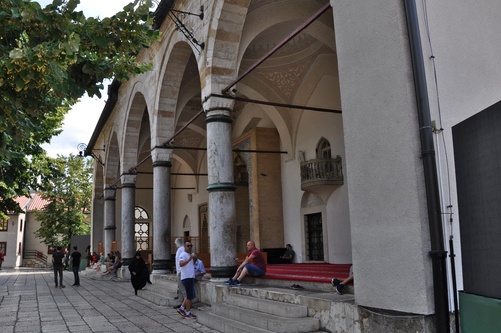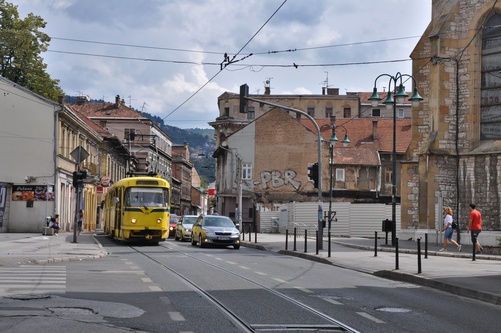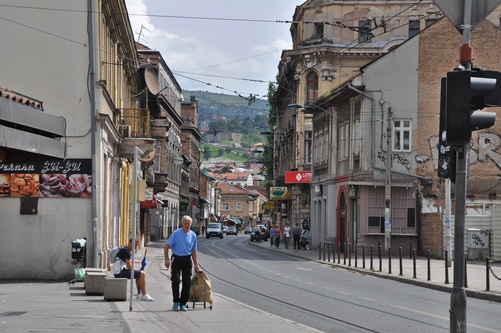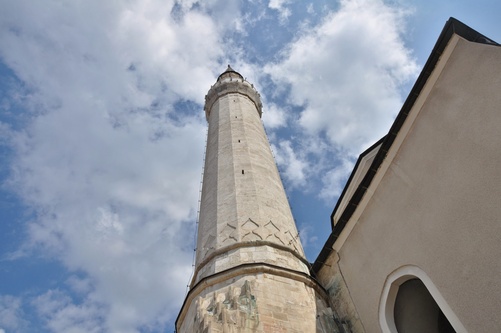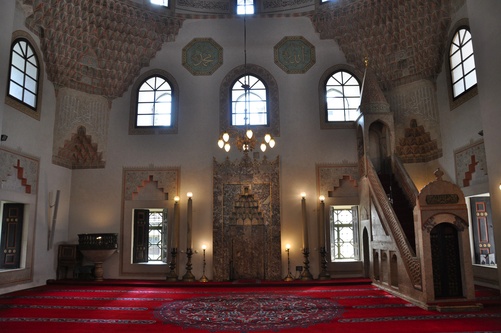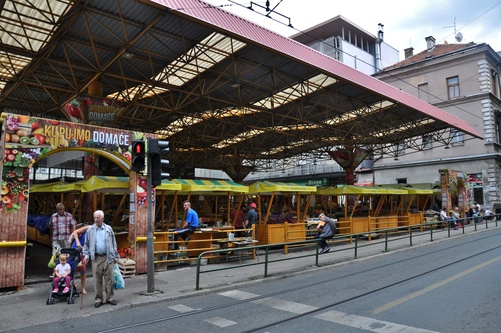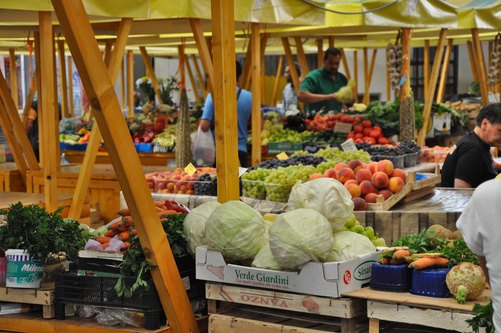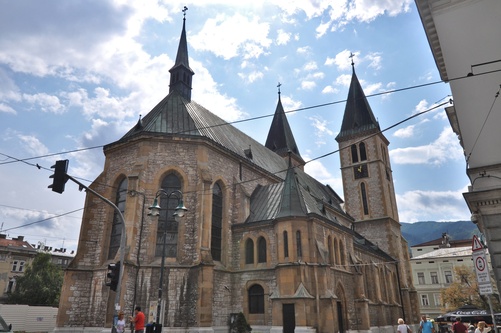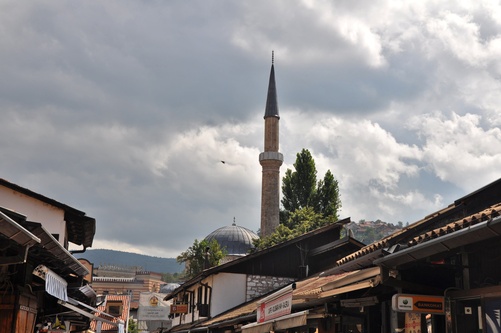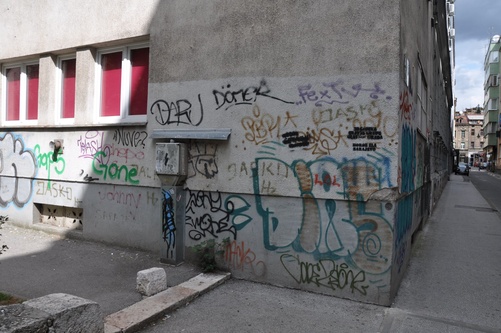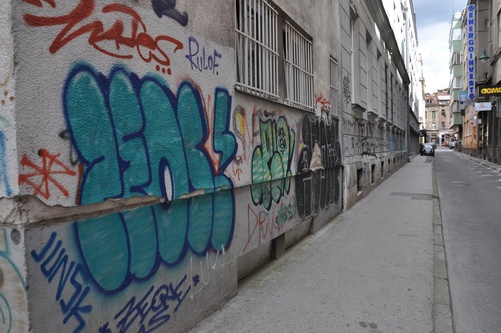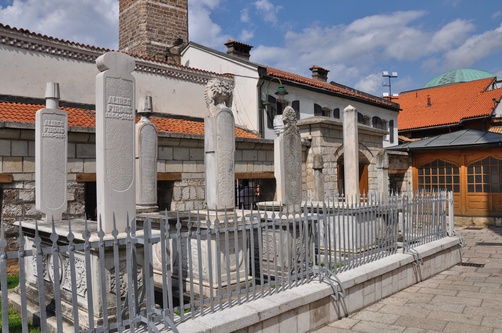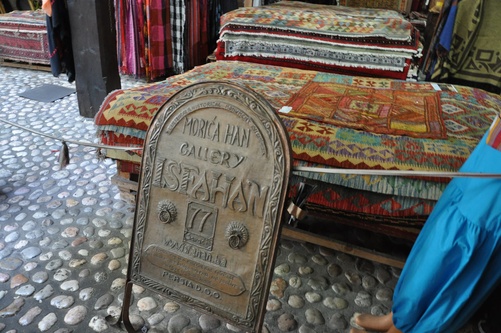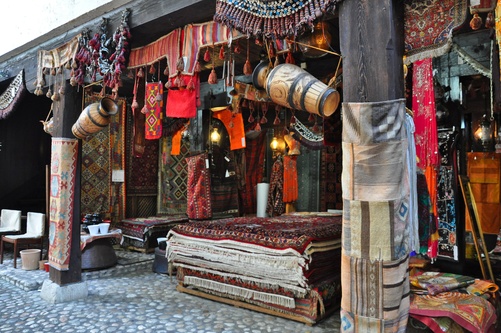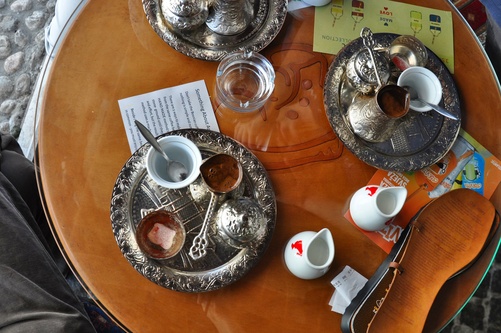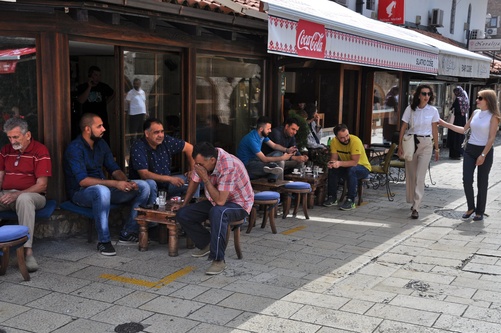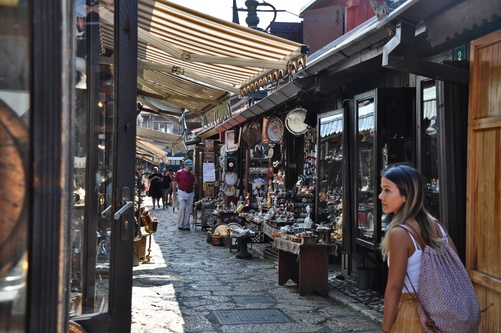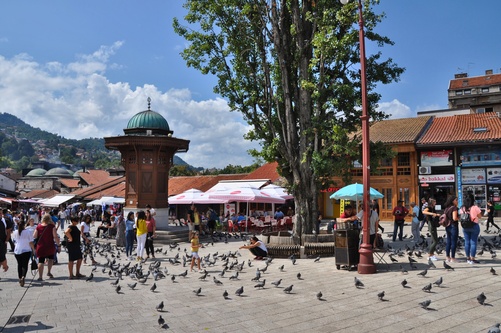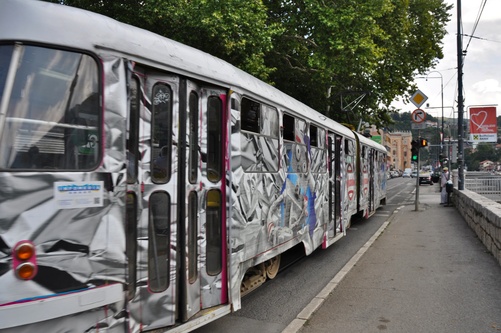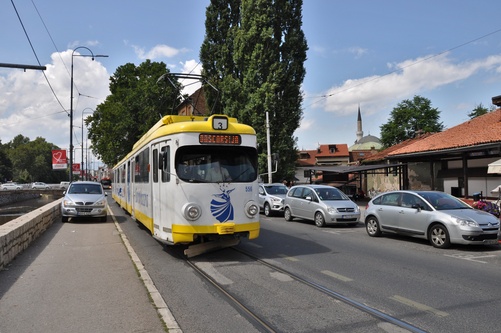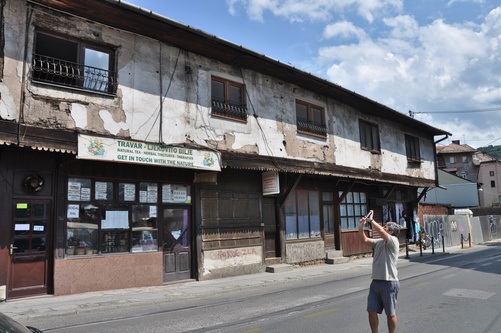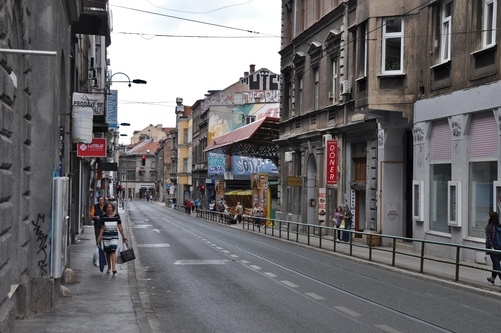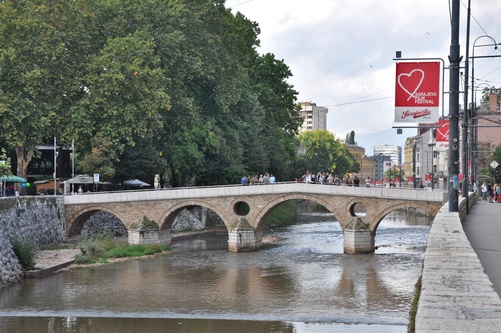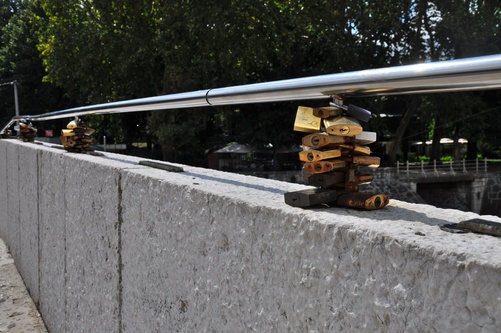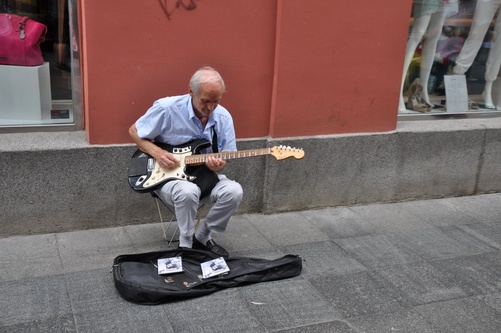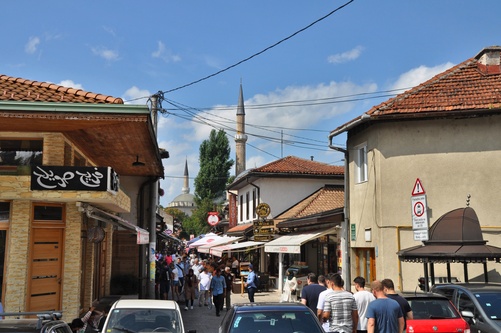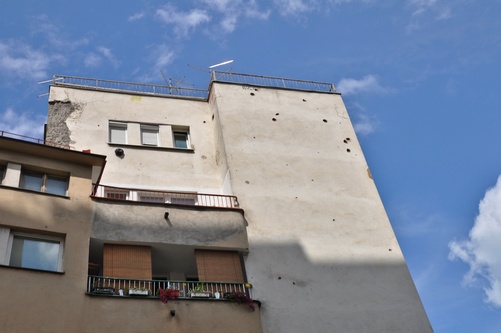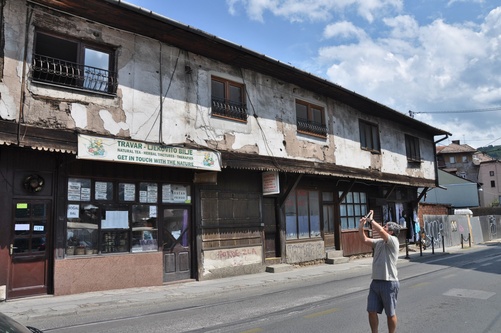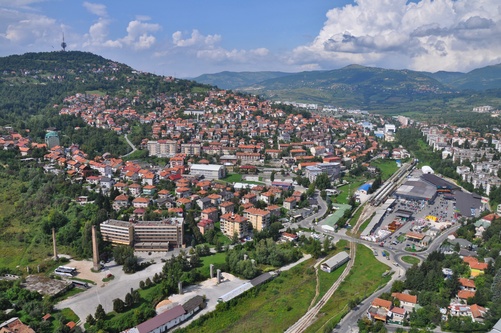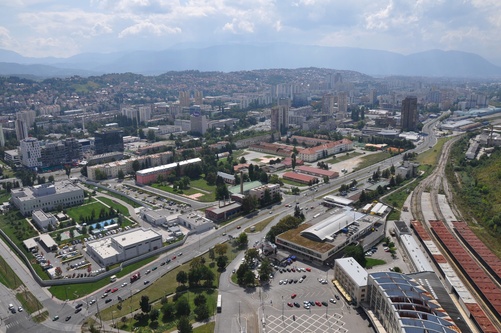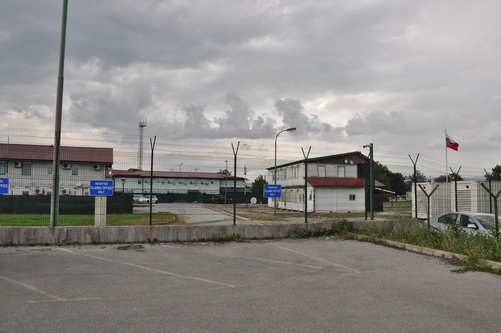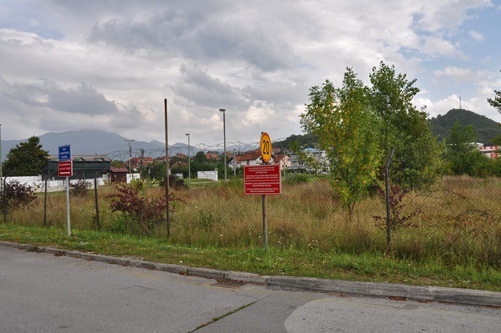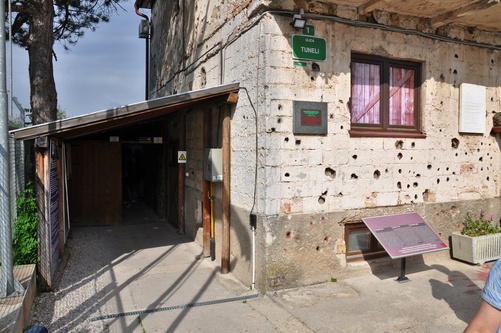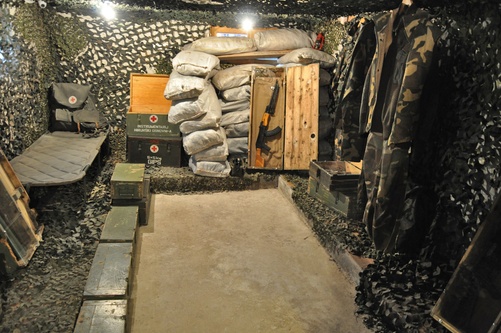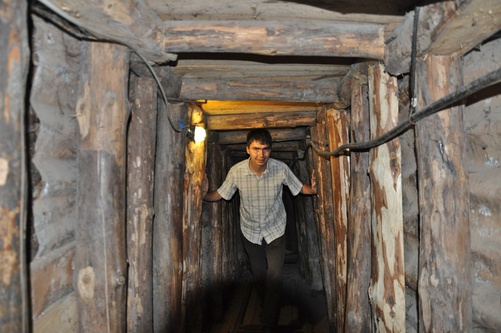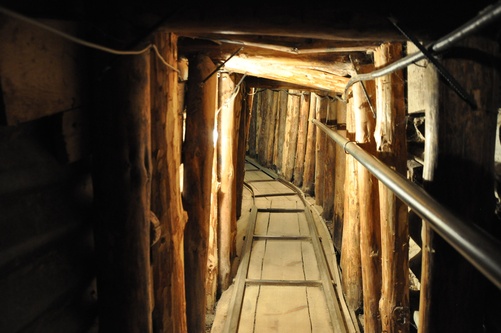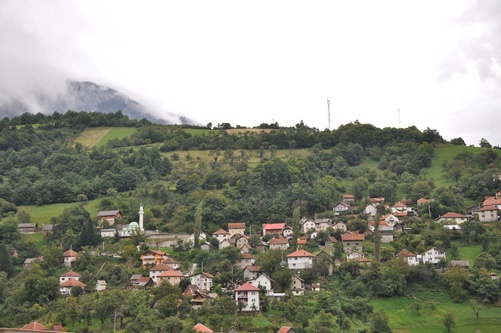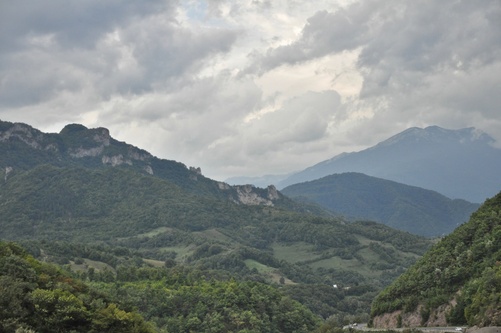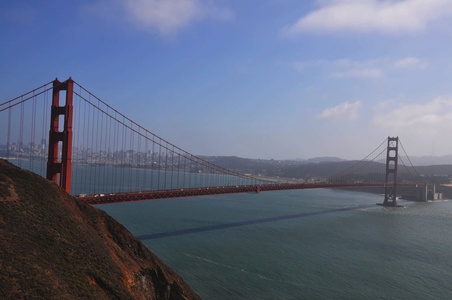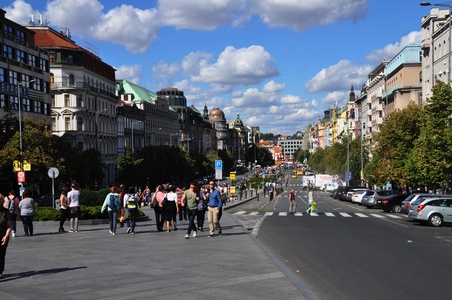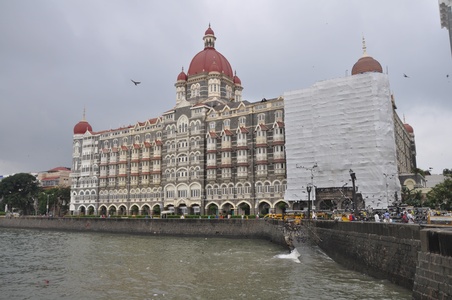Sarajevo 26.08.2018
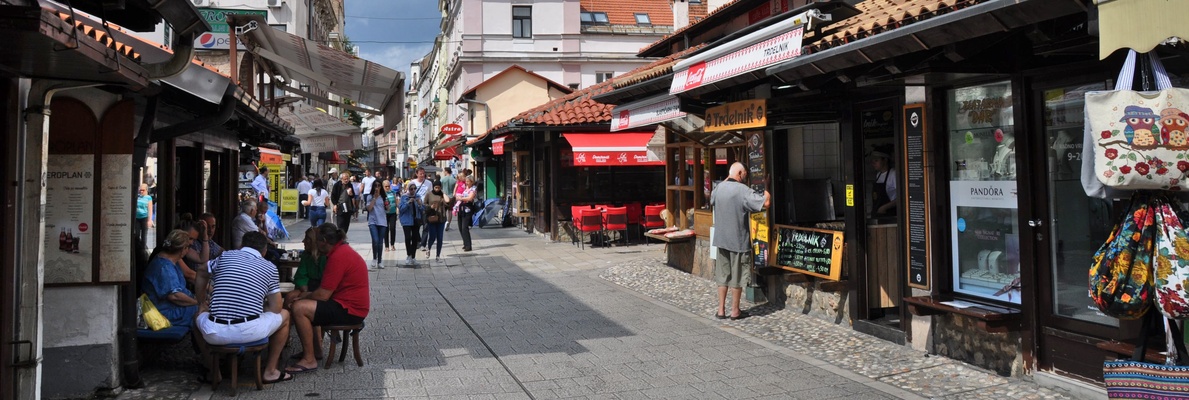
On the way to Sarajevo I had an impression that there will be post-conflict city with lots of war prints which still has a lot of work to do to fully recover. Well, there are still things to do, I saw quite a number of buildings with shooting footages. Fortunately in general my impression was wrong.
Central streets are already fully recovered. There are lots of tourists, souvenirs shopping and so on.
Some buildings are a bit in disrepair, but in general it's fine.
Even though lots of Bosnian war prints are already hidden, the war finished just a few years ago, that's why it's impossible to just say a couple of words about it. During Sarajevo siege Serbian especially bombed historical important objects to make the biggest possible damage to the city. Nowadays it's all repaired very good.
Markale market which was under terrorist attacks so many times. Fruits are wonderful here. For a very reasonable price.
A bit of history. Right after crash of Yugoslavia Bosnia held a referendum and decided to form an independent state. However Serbian people of Bosnia didn't accept the results and didn't want to form a new state. Serbian people from Serbia heavily supported this decision and it was a beginning for ethnic massacres (the biggest one in Srebenica), Sarajevo siege, endless dead people and refugees. The war ended only after NATO stepped in. They waited for it 3 years. It was the most bloody war in Europe after Second World War.
Walls.
Near mosques and churches or just throughout the city (and in entire Balkan region) there are many papers with obituaries on the walls. The color depends on religion: green for Muslims, blue for atheists, black for Christians. Didn't manage to find a good history explanation for this tradition. There is a good post about it in Russian (google translate might help you ;)
Turkish influence is very notable here: carpets, lots of trading, architecture.
Even Turkish Bosnian coffee.
Souvenirs.
Old trams.
Old houses.
Latin bridge. This is exactly the place where Archduke Franz Ferdinand of Austria was shot and that caused a first World War.
Street musician.
Siege prints.
View from a skyscraper.
While I was trying to get to the Tunnel of life I accidentally got to the NATO base (thanks to my navigation system). Yes, there is still NATO base. Turkish guy on the entrance with a very poor English somehow managed to understand what I need and with google translate help explained how I can get there. I was very surprised that NATO military guy almost couldn't speak English.
The tunnel is located right under the airport. Well tourists can't get into the real tunnel. There is a small copy available for visit where you can have an impression of the real one. It was built during 3-year long Sarajevo siege and it was the only way out for refugees and the only way in for provision and ammunition.
It was a bit less than 1km long, though due to underground water it was flooded (not completely, but something up to a waist). The tunnel was the only reason the city managed to survive the siege.
In this part of Bosnia there is no Serbian flags already, like it was in Visegrad. Serbian money is also not accepted and doesn't look like Serbs are warmly welcomed there. However euro is more than ok.
